第169章
"No," said the duke; "to leave the chateau in the middle of the night would be to assume the air of a flight, we had better await the coming day; it will, besides, afford time to apprize the duchess. "While the duc d'Aiguillon was thus gone to arrange for my departure, I requested to be left alone. My heart was oppressed, and I felt the need of venting my grief upon some friendly bosom. After a few moments, spent in collecting my thoughts, I addressed two letters, one to the marechale de Mirepoix, and the other to the duc de Cosse; to the former I wrote on account of my retirement to Ruel, bewailed the sad turn my prospects had assumed, expressed my deep concern for the severe illness of my excellent friend and benefactor, begging of her to defend my character from all unjust attacks, and to allow me to be blamed for no faults but such as I had really been guilty of. I concluded with these words, "Iset out at seven o'clock to-morrow morning; the duchesse d'Aiguillon will conduct me to Ruel, where I shall remain until I am ordered elsewhere."To the duke I merely sent a short account of my present prospects, hour of departure, etc. And, my feelings somewhat relieved by the penning of these epistles, I threw myself upon a couch to await the morning. Upon awaking, I received the following note from the duchesse d'Aiguillon:--"MADAME LA COMTESSE,--I owe his majesty many thanks for the pleasing, yet mournful, task he has allotted me. Your kindness to my family, independently of my private regard for you, gives you the surest claim of my best services during this afflicting period. Let me beseech of you not to despair, but cheerfully anticipate brighter days.
"I will call for you at seven o'clock, and if you approve of it, we will use my carriage. Ruel is entirely at your disposal and that of your family."This note was truly characteristic of its amiable writer, who at court passed for a cold-hearted, frigid being, whilst, in reality, the warm feelings of her excellent heart were reserved for her chosen friends.
I have never admired those general lovers who profess to love every one, nor do I feel quite sure it is a very strong recommendation to say a person is beloved by all who know her.
Read, now, a striking contrast to the short but sympathizing billet of madame d'Aiguillon, in the following heartless letter f from the marechale de Mirepoix, which was put into my hands as Iwas ascending the carriage.
"MY LOVELY COUNTESS,--I am all astonishment! Can it be possible that you are to quit Versailles?
You are right in saying you have been the friend of every one, and those who could speak ill of you are to be pitied for not having had better opportunities of understanding your real character.
But fear not, the dauphiness is virtue personified, and the dauphin equally perfect. Every thing promises a peaceful and indulgent reign, should we have the misfortune to lose his present majesty.
Still there will always be a great void left at Versailles; as far as I am concerned, I have passed so much of my time with you, that I cannot imagine what I shall do with my evenings; it will cost me much of my age to alter habits and customs now so long fixed and settled, but such is life; nothing certain, nothing stable. We should imitate cats in our attachments, and rather identify ourselves with the house than the possessor of it. I trust you have secured an ample provision for the future;neglect not the present, to-morrow may come in vain for you.
"Be sure you let me know the spot to which you permanently retire, and I will endeavour to see you as frequently as my engagements will admit of.
Adieu, ."
Spite of the bitterness of my feelings, this letter drew a smile to my lips; the allusion to cats which had escaped the marechale exactly applied to her own character, of which I had been warned before I became acquainted with her; but her protestations of warm and unutterable attachment had gained my confidence, and Iallowed myself to be guided implicitly by her.